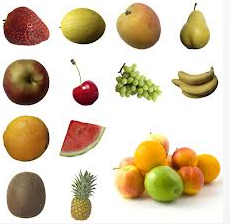
 A friend of mine, Lauri Goldenhersh, runs a wonderful website known as Laurislist. Basically, if you want a job as a classical singer in Los Angeles, you get a subscription to Laurislist, she sends out emails like “URGENT: Baritone needed for Christmas caroling job TOMORROW. $100 in Culver City,” you call, and poof, you have some work. Alternatively, if you have a Christmas caroling job tomorrow and you get laryngitis, you can send an email to Laurislist and someone will call you immediately and offer up his services. Back when I was living in LA, Laurislist was a pretty essential resource.
A friend of mine, Lauri Goldenhersh, runs a wonderful website known as Laurislist. Basically, if you want a job as a classical singer in Los Angeles, you get a subscription to Laurislist, she sends out emails like “URGENT: Baritone needed for Christmas caroling job TOMORROW. $100 in Culver City,” you call, and poof, you have some work. Alternatively, if you have a Christmas caroling job tomorrow and you get laryngitis, you can send an email to Laurislist and someone will call you immediately and offer up his services. Back when I was living in LA, Laurislist was a pretty essential resource.
When talking to Lauri about my workshops, she suggested I guest post for the Laurislist blog, Singerpreneur. Singers, after all, need to learn lots of languages, and a big group of Los Angeles singers would be great candidates for my Los Angeles workshops. I took her up on it.
The article I wrote is geared towards singers, but it covers a theme that resurfaces all over the place in language learning: how we remember. Singers have particularly insane memorization needs; we have to memorize long foreign-language texts all the time. So I wrote out a method for memorizing texts that takes advantage of all the memory research I’ve done over the past year.
Without further ado, jump on over to Singerpreneur: Is there a better way to memorize your texts?


 In most grammar classes and textbooks, you learn words in groups. You might learn about animals on one day and fruits the next. This is comfortable, both for language teachers and students. Your teacher gets to have a clear lesson plan (today is about numbers), and you get to accomplish something (today, I learned the numbers!).
In most grammar classes and textbooks, you learn words in groups. You might learn about animals on one day and fruits the next. This is comfortable, both for language teachers and students. Your teacher gets to have a clear lesson plan (today is about numbers), and you get to accomplish something (today, I learned the numbers!).




